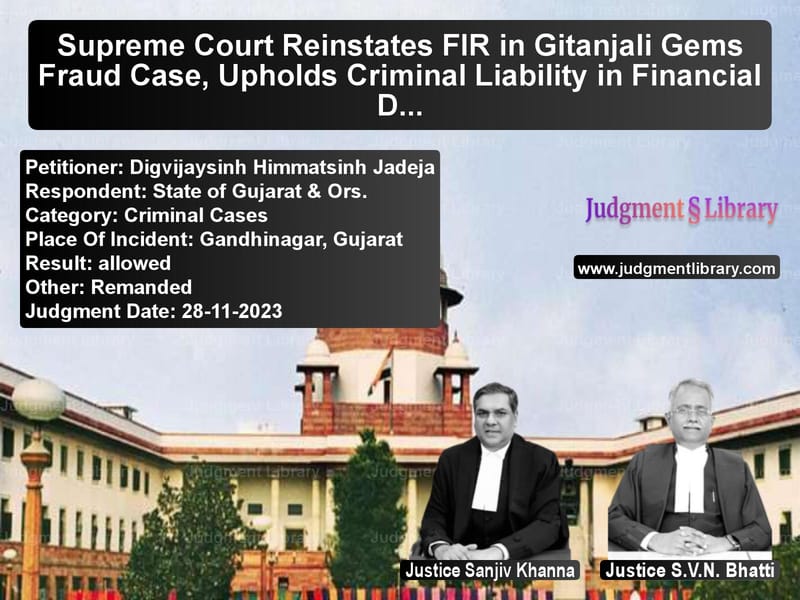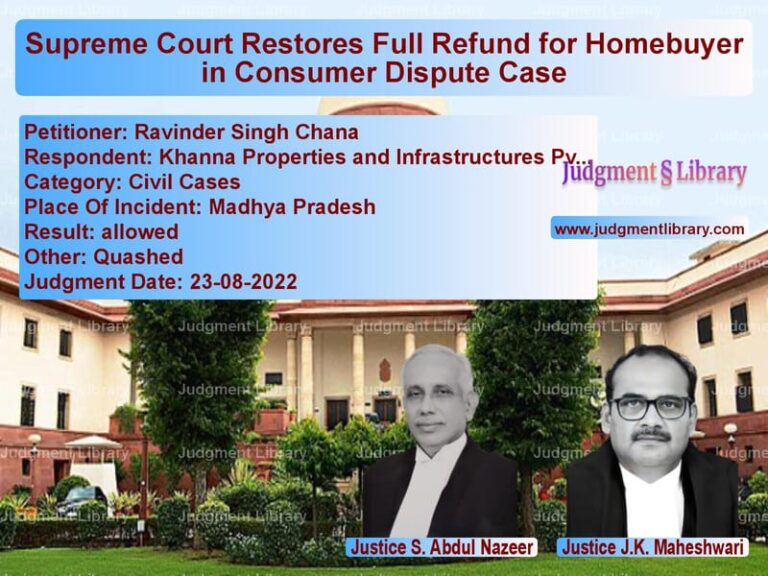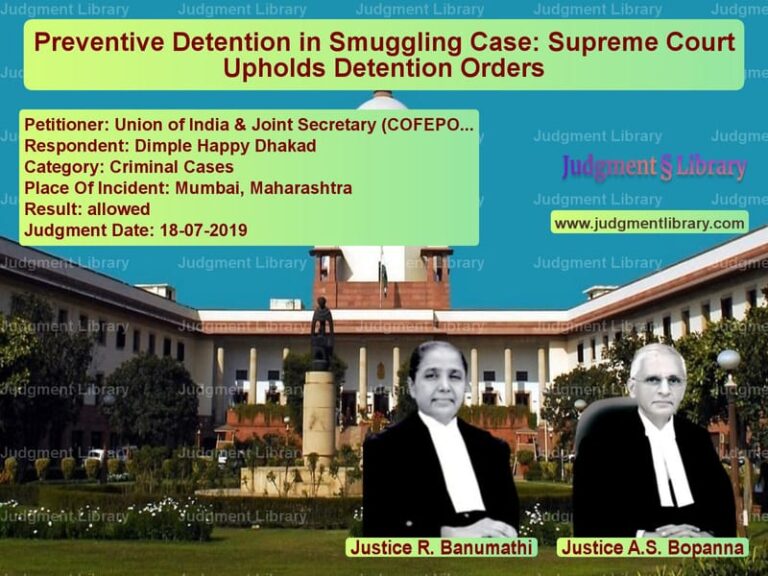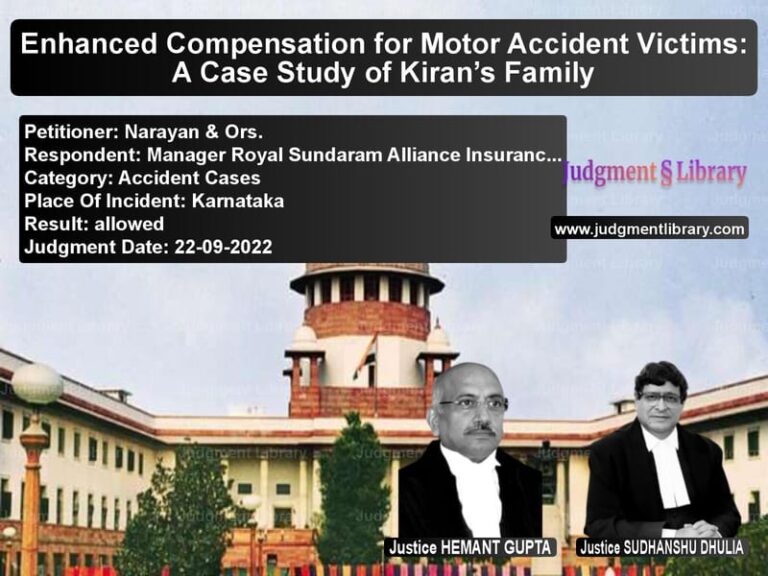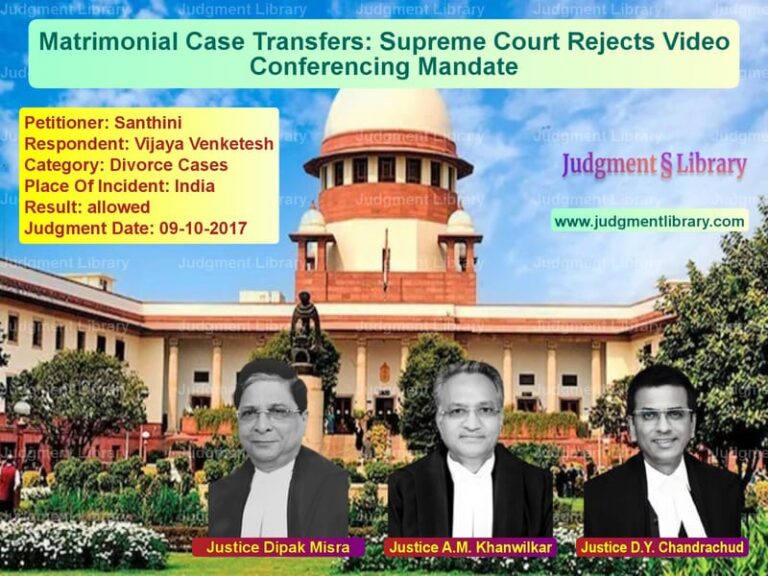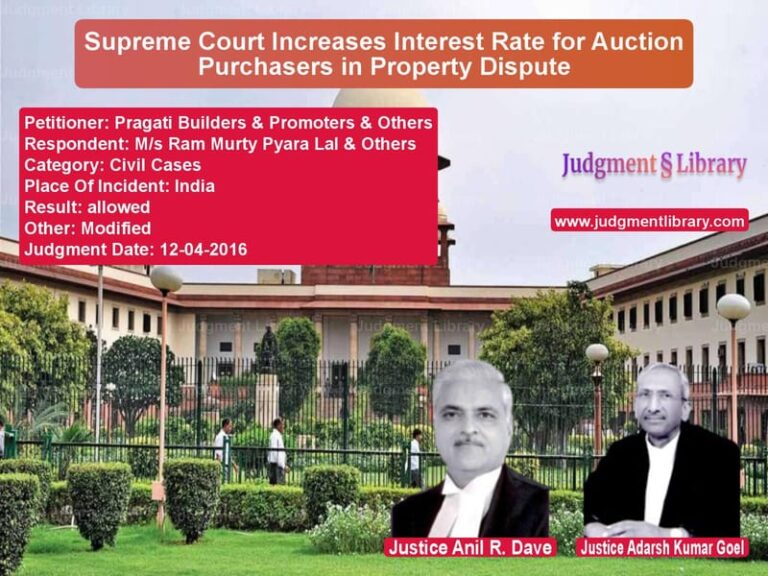Supreme Court Reinstates FIR in Gitanjali Gems Fraud Case, Upholds Criminal Liability in Financial Disputes
The Supreme Court of India recently delivered a significant judgment in Digvijaysinh Himmatsinh Jadeja v. State of Gujarat & Ors., overturning the Gujarat High Court’s decision to quash an FIR related to the Gitanjali Gems fraud case. The case highlights the interplay between civil and criminal liability in business disputes, particularly regarding criminal breach of trust, cheating, and fraudulent misrepresentation.
Background of the Case
The case arose from agreements dated July 25, 2013, and August 13, 2013, executed between the appellant, Digvijaysinh Himmatsinh Jadeja, and Geetanjali Jewellery Retail Limited (GJRL), a subsidiary of Gitanjali Gems Limited. These agreements stated that GJRL would return 24-karat pure gold bars held in a fiduciary capacity. However, the company allegedly failed to fulfill its obligations, leading to an FIR registered on January 23, 2015, at the Gandhinagar Zone Police Station, Gujarat.
Key Legal Issues
- Whether the agreements in question were legally binding under criminal law.
- Whether the allegations constituted criminal breach of trust (Section 406 IPC) and cheating (Section 420 IPC).
- Whether the Gujarat High Court was justified in quashing the FIR on the grounds of it being a civil dispute.
Arguments by the Appellant (Digvijaysinh Himmatsinh Jadeja)
The appellant put forth the following key arguments:
- The agreements were valid and binding, and GJRL was obligated to return the gold.
- The FIR was justified, as the company’s refusal to return the gold bars amounted to criminal breach of trust.
- The agreements were signed by Mr. Santosh Srivastava (Managing Director) and Mr. Shivendra Singh (Associate Vice President), establishing the fiduciary nature of the transaction.
- The Gujarat High Court had erroneously treated the matter as a civil dispute when it clearly contained elements of a criminal offense.
Arguments by the Respondents (GJRL & Others)
The respondents, including GJRL, countered with the following points:
- Mr. Santosh Srivastava had resigned from his position on December 9, 2013, and therefore had no authority to bind GJRL in any transaction.
- The agreements were purely commercial in nature and did not establish a criminal offense.
- The High Court was correct in quashing the FIR, as the dispute was contractual and did not involve criminal elements.
Supreme Court’s Analysis
1. High Court’s Overreach
The Supreme Court noted that the Gujarat High Court overstepped its jurisdiction by conducting a detailed factual examination at the FIR quashing stage. The Court emphasized:
“The High Court should not have undertaken detailed factual examination at the quashing stage, as the matter involved disputed questions of fact.”
The Court ruled that criminal complaints should not be dismissed solely because a civil remedy is available.
2. Validity of Agreements
The Court considered the agreements and found that:
- The agreements clearly acknowledged a fiduciary relationship between the parties.
- The respondents did not dispute the authenticity of the signatures of Mr. Srivastava and Mr. Singh.
- The High Court failed to consider crucial evidence indicating the fraudulent intent of GJRL.
3. Criminal vs. Civil Dispute
The Supreme Court reiterated the principle that the existence of a civil dispute does not automatically preclude criminal liability. The Court noted:
“A wrong may be a civil wrong, or in a given case be a civil wrong and equally constitute a criminal offense. The ingredients of a criminal offense should be satisfied.”
The Court held that the refusal to return gold bars despite valid agreements could amount to criminal breach of trust.
4. Impact on Financial Transactions and Commercial Contracts
The Court acknowledged that contractual breaches occur frequently in commercial transactions but maintained that:
- When deception is involved at the inception of a contract, it can amount to cheating under Section 420 IPC.
- When a party, entrusted with property, dishonestly misappropriates it, the offense of criminal breach of trust under Section 406 IPC is established.
The Court ruled that the prosecution should be allowed to investigate whether the intent to cheat existed from the beginning.
5. Role of Investigating Agencies
The Court directed the police to:
- Resume the investigation and gather evidence regarding the misappropriation of gold.
- Examine financial transactions between the parties to determine criminal intent.
- Ensure that business contracts are scrutinized for possible fraudulent misrepresentation.
Final Judgment
The Supreme Court:
- Set aside the Gujarat High Court’s order quashing the FIR.
- Reinstated the FIR against GJRL and directed the police to continue the investigation.
- Emphasized that courts should not intervene in pending investigations unless there is clear abuse of process.
Conclusion
This ruling reinforces:
- The importance of allowing law enforcement agencies to conduct thorough investigations in financial fraud cases.
- The principle that civil and criminal liabilities can coexist in business transactions.
- The need for courts to avoid quashing criminal cases prematurely based on incomplete evidence.
By revoking the High Court’s order, the Supreme Court affirmed that cases involving corporate fraud and financial misrepresentation must be handled with due diligence under both civil and criminal law frameworks.
Petitioner Name: Digvijaysinh Himmatsinh Jadeja.Respondent Name: State of Gujarat & Ors..Judgment By: Justice Sanjiv Khanna, Justice S.V.N. Bhatti.Place Of Incident: Gandhinagar, Gujarat.Judgment Date: 28-11-2023.
Don’t miss out on the full details! Download the complete judgment in PDF format below and gain valuable insights instantly!
Download Judgment: digvijaysinh-himmats-vs-state-of-gujarat-&-o-supreme-court-of-india-judgment-dated-28-11-2023.pdf
Directly Download Judgment: Directly download this Judgment
See all petitions in Fraud and Forgery
See all petitions in Corporate Compliance
See all petitions in unfair trade practices
See all petitions in Bankruptcy and Insolvency
See all petitions in Money Laundering Cases
See all petitions in Judgment by Sanjiv Khanna
See all petitions in Judgment by S.V.N. Bhatti
See all petitions in allowed
See all petitions in Remanded
See all petitions in supreme court of India judgments November 2023
See all petitions in 2023 judgments
See all posts in Criminal Cases Category
See all allowed petitions in Criminal Cases Category
See all Dismissed petitions in Criminal Cases Category
See all partially allowed petitions in Criminal Cases Category

